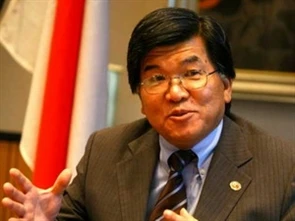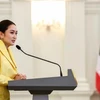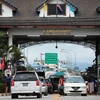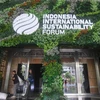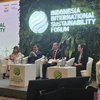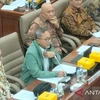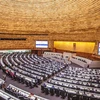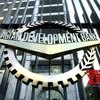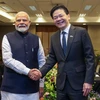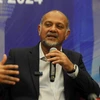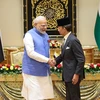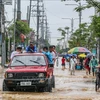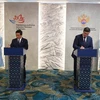Tokyo (VNA) – Japan aims to raise 30 trillion JPY (about 300 billion USD) for high quality infrastructure development projects and human resources training in Asian countries, giving top priority to Vietnam.
Chairman of the Japanese ruling Liberal Democratic Party (LDP)’s General Council Nikai Tohishiro, made the statement at the first session of the party’s special committee on general cooperation strategy for infrastructure development, in Tokyo, on March 25.
He highlighted the significance of implementing effectively the Partnership for Quality Infrastructure initiative.
Vietnamese Ambassador Nguyen Quoc Cuong said Vietnam welcomes the initiative announced by Japanese Prime Minister Shinzo Abe last year.
He expressed his hope that the two countries will foster coordination to improve the efficiency of the use of Japan’s official development assistance (ODA) to develop sustainable, high-quality, and highly accessible infrastructure in Vietnam.
The ambassador particularly pointed to developing transport and energey infrastructure such as highway, seaport and airport systems, and North-South railway, as well as new-generation thermal power plants and new energy systems meeting high environmental standards.
He said Vietnam hopes Japan will prioritise technology transfer, management capacity, vocational training and high-quality human resources development for Vietnam and Mekong sub-regional countries, contributing to regional connectivity.
He added that with a population of over 92 million and an average age of 28 years, Vietnam is at the “golden population” stage and entering a period of rapid infrastructural development in the next 10-15 years.
According to the latest research released by the World Bank, with a gross domestic product (GDP) target of 300 billion USD by 2020, the total capital demand for infrastructure development in Vietnam could amount to over 100 billion USD between 2016 and 2020, averaging 25 billion USD per annum in the next five years, he said.
Vietnam will mobilise such capital from various sources, including State-run businesses, ODA, and private sectors at home and abroad, to implement infrastructure projects under the form of public-private partnership (PPP), he added.-VNA

